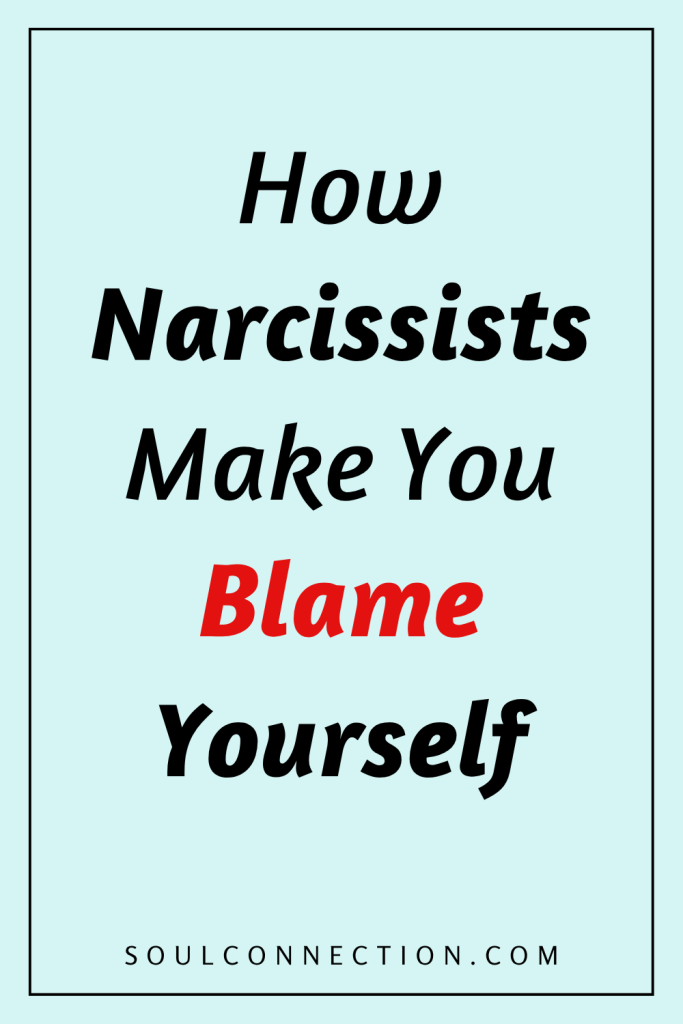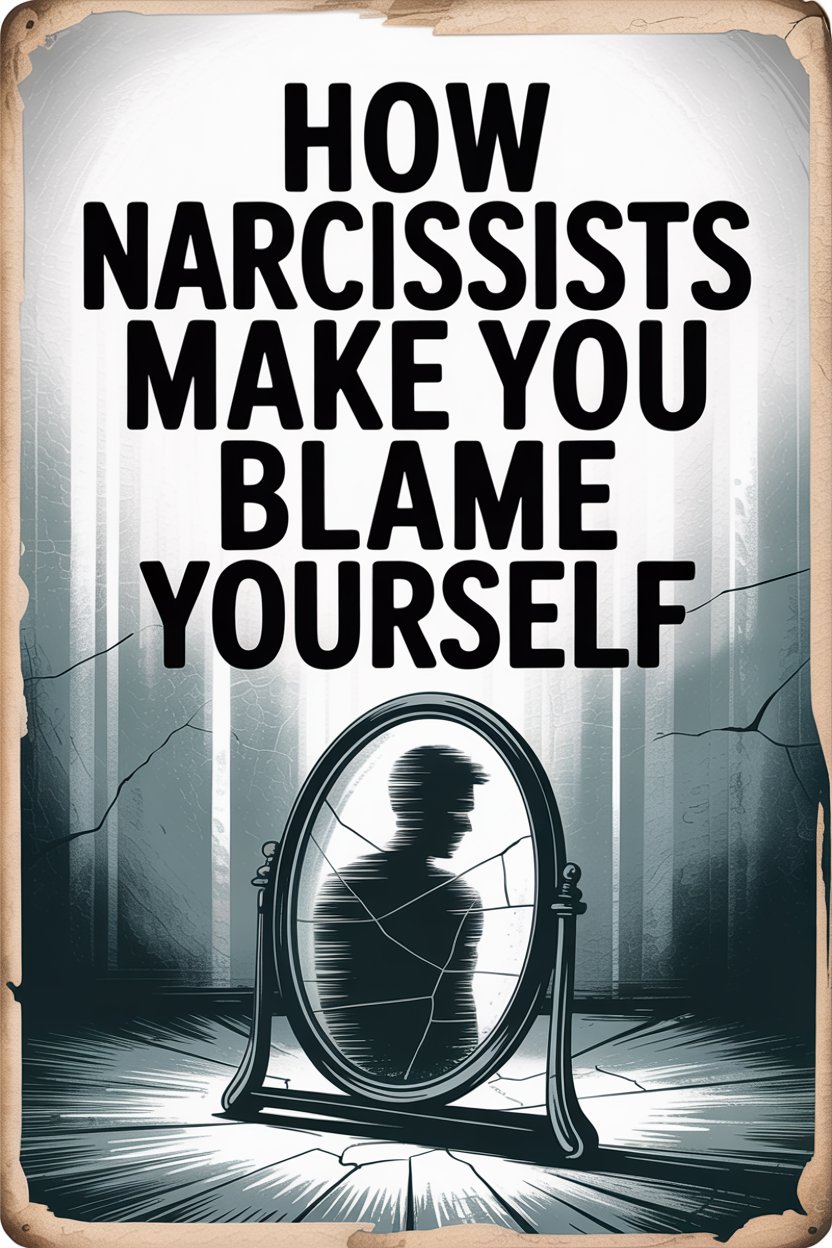Ever found yourself apologising when you’re not even sure what crime you committed? Welcome to the not-so-sparkly magic trick narcissists pull off every day.
It’s the psychological equivalent of being pickpocketed and then thanking the thief for a lovely evening.
Narcissists are masters at turning other people’s doubts inward and making guilt feel like a full-time job. Strap in for an unfiltered look at how they do it, why it’s not your fault, and what you can actually do when the blame game never ends.
Gaslighting With a Side of Confusion
Gaslighting isn’t just a plot device on soap operas. Narcissists wield it like a Swiss Army knife to twist reality until you can’t tell up from down. They’ll insist that things didn’t happen the way you remember—or didn’t happen at all.
Your completely reasonable upset gets dismissed as “too sensitive,” or “overreacting,” or, my personal favourite, “making things up for attention.”
After enough rounds of this, you start to question your own sanity. Maybe you did misinterpret? Maybe you are too sensitive? Spoiler: you’re not. The confusion is by design; it’s meant to keep you off balance and easy to control.
When you can’t trust your own perception, it’s easier to take the blame for things that aren’t your fault.
The Art of the Perfect Victim
Ever noticed how some people can trip over their own shoelaces and somehow blame everyone else for the sidewalk? Narcissists love a starring role as the wronged party.
When something goes awry, they’ll paint themselves as the innocent victim—while quietly nudging you into the role of villain.
Maybe you dared to disagree, or even just existed in the wrong mood. Suddenly, there’s a dramatic performance about how much you’ve hurt them, how you never understand, or how “nothing I ever do is good enough for you.”
Cue the guilt. It’s like emotional origami: twist, fold, and suddenly the whole argument is your fault.
Shifting the Goalposts
Narcissists have a unique talent for making you feel like you’re on a never-ending game show where the rules keep changing. Ever tried to please someone who’s only happy when you’re unhappy? Welcome to their world.
One day, you’re told you don’t pay enough attention. Focus too much, and now you’re “smothering” or “obsessed.” No matter what you do, it’s never quite right.
The goal here isn’t harmony; it’s to keep you chasing their approval. When you inevitably fall short (because everyone does), you get the blame.
Weaponising Your Empathy
If you’re someone who cares about others, congratulations: you have exactly the trait narcissists love to exploit. They zero in on your empathy the way a dog finds the only patch of clean carpet to be sick on.
They’ll share their tragic backstory, explain how misunderstood they are, and reveal that everyone has always let them down. Before you know it, you’re bending over backwards to “prove” you’re different.
And when you get tired or frustrated, that’s flipped against you, too. If you really cared, you wouldn’t be upset. If you really loved them, you’d be more patient.
In short: they make your best qualities work against you.
Projecting Their Flaws Onto You
Projection isn’t just for PowerPoint presentations. Narcissists are Olympic-level pros at accusing you of the very things they’re doing.
Been lied to? Suddenly you’re the dishonest one. Felt manipulated? Apparently, you’re controlling. Argued back? Now you’re the one starting fights.
This isn’t random. It’s a smokescreen that keeps you defending yourself instead of seeing the real problem. If you’re busy justifying your actions, you’re much less likely to call out theirs.
Classic misdirection, but with higher emotional stakes than any magic show.
Twisting Facts Like a Pretzel
Ever tried to have a straightforward conversation and ended up in a debate about what “actually happened”? That’s a narcissist’s bread and butter.
They’ll reframe events, cherry-pick details, and retell stories until you can’t recognise them.
Suddenly, they “never said that,” or “you agreed to this ages ago.” Sometimes they’ll even rope in others to back their version of events. Before long, you’re apologising for things you don’t remember or never did, just for the sake of peace.
Playing the Martyr Card
Some people love the moral high ground so much, they build a holiday home on it. Narcissists are experts at martyrdom.
If you express frustration or try to set a boundary, they’ll lament how hard it is to deal with you, how much they sacrifice, all the terrible things they put up with.
Cue your guilt, as you’re cast as the self-absorbed partner who just can’t appreciate all their suffering. It’s emotional blackmail—just with more dramatic flair.
Isolation, With a Smile
A narcissist’s best work happens behind closed doors. If you have friends or family who might remind you of your worth, that’s a threat to their control. Gently—or not so gently—they sow seeds of doubt about your loved ones.
Maybe your best mate “doesn’t really care about you,” or your mum “always interferes.”
The more isolated you become, the easier it is for them to twist your reality, and the harder it gets to see that the problem doesn’t start and end with you. When your world shrinks, self-blame expands.
Love Bombing and Withholding
Narcissists are generous—when it serves their agenda. They’ll smother you with affection and praise when you toe the line, making you feel special, needed, adored. Step out of line, and suddenly that warmth is gone.
Cue the cold shoulder, the withdrawal of affection, the conspicuous silence.
Guess who gets to feel responsible for getting things back on track? That’s right. The whiplash from their extremes keeps you working overtime to fix things that aren’t broken—at least, not by you.
Subtle (and Not So Subtle) Criticism
Compliments from a narcissist often have a stinger in the tail. “You’re so smart—when you actually try.” “You look great—did you finally start exercising?” There’s always a little dig, a reminder that you’re never quite enough.
Over time, this wears down your confidence, making it easier to believe that you really are the problem. The more self-doubt creeps in, the easier it is for them to point the finger your way.
What To Do When the Blame Game Won’t Stop
Recognising the pattern is half the battle, but actually escaping the blame spiral is where the rubber meets the road.
Start by keeping your own mental record—write things down, talk to trusted friends, or seek out a professional who knows the narcissist’s playbook. The goal isn’t to “win” an argument, but to reclaim your sense of what’s real.
Boundaries are your best defence. That means saying “no” without an essay attached, choosing not to engage in every debate, and resisting the urge to justify your every move.
If you’re met with more drama, that’s a sign you’re on the right track—narcissists hate losing control.
Remember, being blamed for everything isn’t a reflection of your actual character. It’s a reflection of their need to be right, worshipped, and never at fault. Guilt can be a useful emotion—if you’ve actually done something wrong.
But when guilt is being served up with every meal, it’s time to question the chef.
Blame Is Not Your Birthright
If you leave with one takeaway, let it be this: the fact that you’re asking how narcissists make you blame yourself is already evidence you’re not the problem. People who are genuinely at fault rarely wonder if they are.
Self-blame is a favourite tool of narcissists, but it only works when you start believing it. When you catch yourself carrying guilt that doesn’t belong to you, put it down—like a heavy bag at the end of a long, pointless journey.
You’re allowed to trust your version of events. You’re allowed to have boundaries. And you’re absolutely allowed to stop apologising for things you didn’t do.
If that feels radical, well—maybe that’s the real magic trick.


